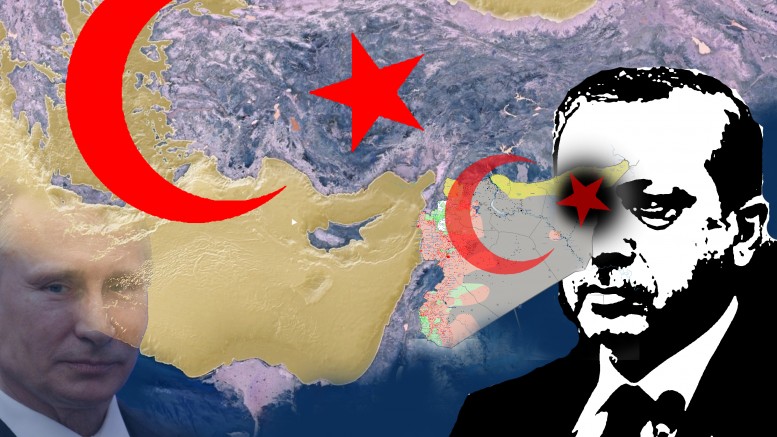The recent downing of a Russian Su-24 jet by Turkish forces over Syria is the first time a NATO member has destroyed a Russian aircraft since the 1950s. Given the complex, fractious conflict that is the Syrian civil war, such a move could have proved catastrophic. This is especially true considering the authoritarian and uncompromising nature of both Russia’s Vladimir Putin and Turkey’s Recep Erdoğan, neither of whom is keen to appear weak.
Putin has demanded an apology from Turkey, while Erdoğan has counter-demanded an apology from Russia. Erdoğan is quoted as saying “those who violated our airspace are the ones who need to apologize.” The violation in question lasted all of 17 seconds.
Also bear in mind that Turkey violated Greek airspace 2244 times in 2014 alone. But it’s worse than that; in 2012, when Syria downed a Turkish F-4 fighter thought to have entered Syrian airspace, Erdoğan made the following remark: “a short-term border violation can never be a pretext for an attack.”
One can only imagine the unease, or just outright frustration, Western leaders must have towards the Turkish president at the moment. Despite this, Turkey is a NATO member, and U.S. President Barack Obama has expressed the United States’ support for “Turkey’s right to defend its sovereignty.”
Meanwhile, NATO Secretary General Jens Stoltenberg has said that NATO stands “in solidarity with Turkey.” But what kind of government is it that Western powers feel the need to express such solidarity with?
Turkey, under the centralized rule of Erdoğan and his right-wing Justice and Development Party (AKP), has followed a repressive domestic policy coupled with a capricious foreign policy. Elected president in 2014, following 11 years as prime minister, Erdoğan has sought to increase the power of his office.
Last year, Haşim Kılıç, then head of the constitutional court, accused Erdoğan of threatening the rule of law in Turkey and the very survival of the judiciary. Just this month, after the AKP regained a majority government, Erdoğan reiterated his demand for a constitution that grants greater presidential powers.
The AKP’s authoritarian rule is most visible in the country’s restriction of free speech and the press; Reporters without Borders ranks Turkey 149th out of 180 on their Press Freedom Index. This is a regime under which TV stations critical of the government are seized, cartoonists are prosecuted for the crime of satire, publishers of the work of Noam Chomsky face prosecution, the editor of a daily newspaper is personally threatened by the president, and even a 16 year old is arrested for daring to insult Erdoğan’s integrity. None of this should come as a surprise from the regime of the man who said: “I am increasingly against the Internet every day.”
Importantly, thanks to the efforts of journalists from the newspaper Cumhuriyet (two of which are currently being charged for espionage), we have evidence that the Turkish National Intelligence Organization has been supplying arms to Islamist rebel groups in Syria.
There would also appear to be evidence (retrieved by U.S. Special Forces) indicating an “undeniable” link between Turkey and ISIS oil operations. In addition, it is known that innumerable foreign fighters have crossed Turkey’s porous border to join ISIS. All of this gives weight to the view that Turkey supports, or has at least turned a blind eye to, ISIS.
This information helps to explain Turkey’s heavily disproportionate bombing of Kurdish forces over ISIS targets. Turkey has primarily focused on hitting the Kurdistan Worker’s Party, which Erdoğan sees as Turkey’s “primary threat.” Turkey has admitted to attacking positions in Rojava (the Kurdish autonomous region in Northern Syria) held by the People’s Protection Unit, a force with which the U.S. coordinates. Erdoğan’s brutal response to the Kurdish question, therefore, is not limited to the borders of the Turkish state.
In an article in the Guardian, David Graeber described Rojava as a “bright spot” in the region, one engaged in a “remarkable democratic experiment.” The Kurds of Rojava are not only an effective fighting force, but also an emancipatory one seeking autonomy, equality, and self-determination. Solidarity ought to be lent to those Kurdish forces that, despite Erdoğan’s foreign policy, continue to fight fascism by their attempt to carve out a free society.



